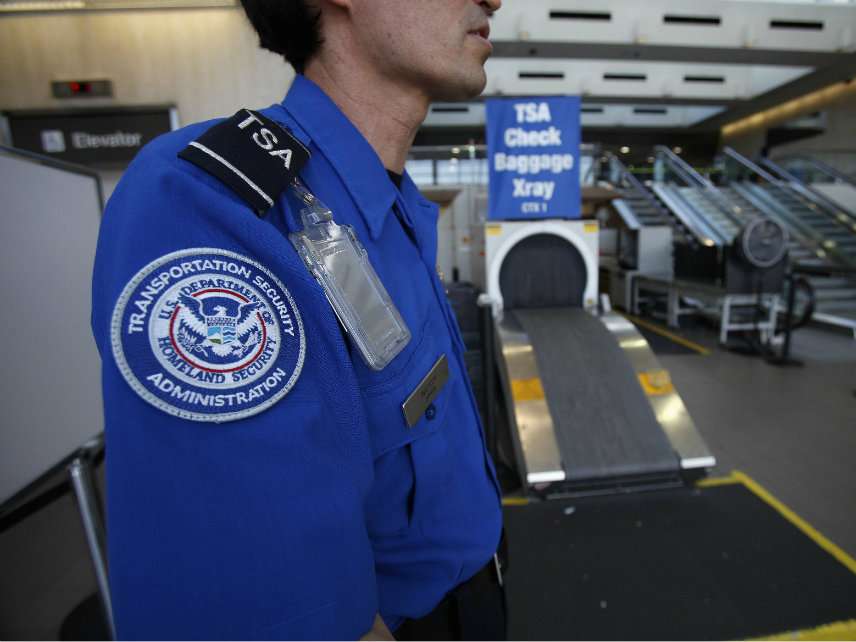Working for TSA Is Only Thing Worse Than Being Searched by TSA, Report Finds
The House report will make you feel sorry for TSA employees against your will.

Millions of travelers hate the Transportation Security Administration (TSA), thanks to its invasive body scans, its pat-downs that border on molestation, and its general ineffectiveness when it comes to evaluating threats.
But it's not just fliers who are treated terribly. The TSA is also plagued by a "toxic" workplace culture where senior officials' misconduct goes unpunished and those who threaten to speak out face retaliation, according to a report from Republicans on the House Committee on Oversight and Government Reform.
The committee says its probe started in 2015, when it started receiving "credible allegations" of wrongdoing. The investigators found a host of problems, which the committee believes are directly related to low employee morale. The report, released yesterday, says:
The toxic combination of unchecked misconduct by senior officials and retaliation against rank-and-file whistleblowers undermined employee morale, reflected in the agency's astronomical attrition rates (as high as 20 percent in some segments of the workforce during the period in question) and abysmal ranking in a government-wide job satisfaction survey (336 out of 339 agencies and components in 2017).
The first part of the committee's report dealt with alleged misconduct from agency administrators. One official, for example, is accused of sexually harassing more than one worker. Mark Livingston, who supervised one of those employees, says he was threatened when he confronted the alleged harasser. "[H]e told me if I didn't lie for him that I was going to be on his 'S' list," Livingston told the investigators. "And then when I told him that I would not lie after he sexually harassed her, he told me that if I didn't, him and the others couldn't work with me."
A source tells ABC News that the alleged harasser is Joseph Salvator, who still works at the agency as deputy director of security operations. In 2016, Salvator was accused of harassment in The Washington Post by Alyssa Bermudez, a former TSA worker.
Salvator wasn't alone, the reports says. In 2015, for instance, a TSA official was arrested for driving while intoxicated. She blamed another TSA employee, who she claimed had driven the car before abandoning her. The official eventually confessed to the DWI, and the TSA's Office of Professional Responsibility recommended she be fired. Instead she got a two-week suspension.
In another case, the report says a senior TSA official at a midwestern airport called Muslims "stupid ragheads" and made "mooing sounds" at a pregnant worker. Despite "numerous" complaints from employees, the official "was allowed to engage in inappropriate behavior for at least seven years," the report says.
How were TSA officials able to get away such misconduct? According to the report, whistleblowers and other "disfavored employees" were punished with "involuntary directed reassignments," meaning they often had to move hundreds of miles away. The TSA has since changed its directed reassignment policy the committee says, but was still forced to pay out at least $1 million in settlements to affected workers.
Finally, the report says the agency "obstructed investigations into TSA misconduct and retaliation." When the Department of Homeland Security's Office of Special Counsel investigated many of the allegations, the TSA either wouldn't release relevant documents or "produced heavily redacted documents," the report says.
These accusations are not terribly surprising. Whether it's the surveillance, the stalking, or the fondling, this isn't an agency with a great track record when it comes to treating people well. It's not exactly a shock that it doesn't respect its employees any more than it respects American fliers.


Show Comments (29)